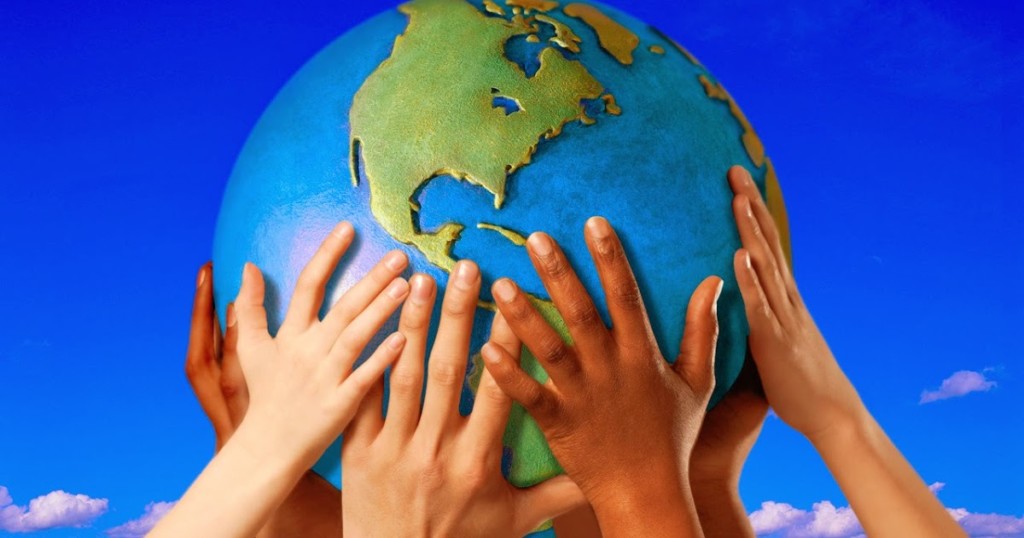Making peace with the planet is a task that has become increasingly important as humanity has begun to realize the impact that our actions have on the natural world. From climate change to pollution and habitat destruction, we have caused significant harm to the earth and its ecosystems. However, it is not too late to turn things around and make amends. By adopting more sustainable practices and taking steps to protect and restore the natural environment, we can work towards a more harmonious relationship with the planet.
One key way to make peace with the planet is to reduce our consumption and waste. Many of the environmental problems we face today are the result of overconsumption and the production of unnecessary goods. By being more mindful of what we buy and using resources more efficiently, we can reduce the burden on the earth and its natural systems. This can involve simple steps such as using reusable bags instead of single-use plastic ones, choosing products with minimal packaging, and repairing or repurposing items instead of constantly buying new ones.
Another important aspect of making peace with the planet is protecting and preserving natural habitats and ecosystems. As human populations have grown and urbanized, we have often encroached on and destroyed the habitats of other species. This has had devastating consequences for biodiversity and has contributed to the extinction of many species. To make peace with the planet, we must work to protect and restore these habitats, and take steps to ensure that other species have the space and resources they need to thrive. This can involve supporting conservation efforts, establishing protected areas, and working to mitigate the impacts of development on natural habitats.
In addition to reducing our own impact on the planet, we can also work to address the environmental problems that we have caused. Climate change is one of the most pressing challenges facing the planet, and it is largely the result of human activities such as burning fossil fuels and deforestation. To make peace with the planet, we must take steps to reduce our greenhouse gas emissions and adopt more sustainable practices that limit the amount of carbon we release into the atmosphere. This can involve using renewable energy sources, reducing our reliance on fossil fuels, and adopting more efficient technologies.
Finally, making peace with the planet requires that we recognize our interconnectedness with the natural world and the ways in which our actions impact it. This means acknowledging that we are not separate from the environment, but rather an integral part of it. It also means recognizing that the well-being of the planet is ultimately tied to our own well-being, and that the health of the natural world is essential to the health and prosperity of humanity. By understanding these connections and working to live in harmony with the planet, we can build a more sustainable and harmonious future.
In conclusion, making peace with the planet is a crucial task for humanity. By reducing our consumption and waste, protecting and preserving natural habitats, addressing the environmental problems we have caused, and recognizing our interconnectedness with the natural world, we can work towards a more sustainable and harmonious relationship with the earth. By taking these steps, we can build a brighter future for both ourselves and the planet.
Everyone will lose unless humanity makes ‘peace with the planet’, declares Guterres

That's where much of the problem lies of course but he wants to steer clear of partisanship. Therefore life — not just human life, but all life — is sacred and must be treated with reverence. Our government is poorly designed to respond swiftly and dramatically to ecological crises. The importance of nonviolence is recognised by many religions, but in most cases it is interpreted to mean nonviolence to other humans. This constant awareness is key to maximising compassion and minimising harm. With good care of the Earth, all humans can have a good life, good food, good housing, good education, good medicine — which is very different from a lot of bad food, bad housing, bad education, bad medicine, and much besides.
Making Peace with Planet by Barry Commoner

And in doing so, Schwab finds emerging examples of new ways of doing things that provide grounds for hope, including: Individual agency: how countries and policies can make a difference against large external forces A clearly defined social contract: agreement on shared values and goals allows government, business, and individuals to produce the most optimal outcomes Planning for future generations: short-sighted presentism harms our shared future, and that of those yet to be born Better measures of economic success: move beyond a myopic focus on GDP to more complete, human-scaled measures of societal flourishing By accurately describing our real situation, Stakeholder Capitalism is able to pinpoint achievable ways to deal with our problems. Foster details the beginnings of such a revolution in human relations with the environment which can now be found throughout the globe, especially in the periphery of the world system, where the most ambitious experiments are taking place. The "Trash" chapter is a bit outdated as there has been considerably improvement re-cycling. Jains recognise that earth, air, fire, water, plants, forests, insects, animals, birds — in other words the entire natural world — are all alive. It is a book of hard facts and figures whose conclusion—that environmental pollution can be prevented only through fundamental redesign of the way we produce goods—demands basic changes all across America, from the highest offices in Washington, D. In building on this diagnosis, the report identifies the shifts needed to close gaps between current actions and those needed to achieve sustainable development.
Making peace with the planet : Commoner, Barry, 1917

He got about a million votes as I recall actually about 300,000. I don't feel the need to read all the numbers so I skim that and read the opening paragraphs of each chapter and the closing. Its proposals are grounded in a renewal of the social contract, adapted to the challenges of this century, taking into account younger and future generations, complemented by a new global deal to better protect the global commons and deliver global public goods. Gore, for whom the Nobel prize marked a dramatic comeback from defeat to George W. Then, when the shit really hits the fan in 50 or 100 or 150 years from now they can whine about how "we didn't know! Intergovernmental Panel on Climate Change whose head, Rajendra Pachauri, told leaders at a U. There are also four significant religions that came from abroad but have made important contributions to the life of Indians: Christianity, Islam, Zoroastrianism — the religion of the Parsee community — and Judaism.







